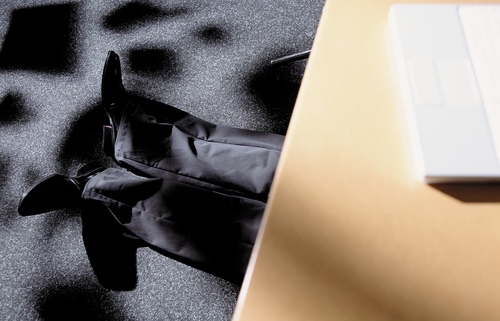
I’ve slept under my desk before.
A few times in fact. It wasn’t comfortable, but it was more comfortable than sleeping on my chair or on top of my desk (I’ve tried both.) Somehow the existence of the desk made it feel a bit safer…
At one point (at one of my startups many years ago) we bought a couch that converted into a bed. I never used it, but my partner did. Others may have as well. There was an air mattress floating around somewhere too.
Startups aren’t fair. Neither is life. It may be that entrepreneurs are so young these days (particularly in the hotbed of Silicon Valley) that they haven’t had enough life experience to appreciate that fact. They’ve got all the enthusiasm and hustle in the world (both needed in massive quantities to succeed) but not the battle scars to understand what it’ll ultimately take.
But startups don’t own the “work insane hours like mad fools” space entirely unto themselves. Have you ever met a doctor that’s on a 24 or 36-hour shift? Now that’s insane, especially since they’re job is to save people’s lives. I’ve known young lawyers who join a firm as a junior associate and work absurd amounts; consistently more, for longer periods of time, than most people in any startup. And big game companies are known for pushing their people into super intense crunch periods before their games are finished. Life is hard. Work is hard. No shit.
There are plenty of examples of people having to work hard. Perhaps too hard. There’s definitely a startup culture around working tons of hours, although you can’t measure success or output simply in hours. Most of the time there’s some level of compensation: high salaries, big bonuses, etc. Whether the compensation matches the expectations is not always obvious or true, but there’s usually something in place. In a startup, the motivation is the experience – you either want to live the experience of the roller coaster or you don’t. I completely understand if you don’t, and even those addicted to the experience question themselves from time to time when things are really bad. Compensation in startups is tricky because salaries are usually lower (certainly at the beginning) than market value. This is often compensated with equity and the dream of future riches. Most don’t get there, which is why those future riches are a difficult lever for motivation, especially when the equity doled out is so little. The earliest employees deserve a bigger piece of the pie.
There are lots of great reasons to join a startup. But there are cons too. That’s life – pros and cons – and being able to balance those to your own comfort level is important for your survival and success. I don’t see the level of complaining that Michael Arrington makes reference to, but it doesn’t surprise me. The grass is always greener on the other side right?
Whenever this discussion around work/life balance, startup culture, startup “realities”, etc. emerges I always go back to a post I wrote in July, 2007 when I was starting Standout Jobs and my second son had just been born: How to Start a Company and Family at the Same Time. It still makes me nod and smile, and although my kids are a bit older now, it’s still a crazy struggle every day to figure out the right balance between family, startup / job, myself, my wife and life. Who knows if I’ve got it right?
Joining a startup – particularly an early stage one – isn’t a simple career choice, it’s a lifestyle choice. You have to go in eyes open and not only understand what’s coming, or just appreciate what’s coming, but embrace the experience fully, and be in it because of the experience.
And every once in awhile, that’ll mean sleeping under your desk…
Man lying under desk image from Shutterstock.
 Founding Partner at
Founding Partner at 